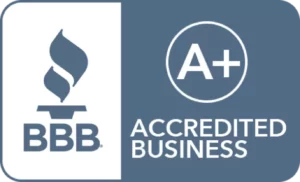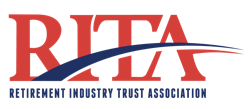When it comes to saving for retirement, one thing gets often overlooked: alternative investing. Why? Because many savers don’t know that you don’t have to put your money into stocks and bonds. You can use 401(k) or IRA funds to invest in just about anything there is. The IRS only tells you what you can’t invest in – the rest is (generally) fair game. In the following, we’ll give you all the reasons you should choose alternative asset classes, such as real estate and gold. After that, the ball is in your court.
Let’s first preface this by saying we are not in the business of offering financial advice. IRA Financial Trust is an IRA custodian. We are not financial advisors. Anything you read here, or elsewhere on the site, is for educational purposes. You should always consult with someone who will put your best interests first. Together, you can make an informed decision about the assets you want to invest in. IRA Financial will set up your self-directed retirement plan and be there for you if you have any questions. Don’t hesitate to contact us at any time if you have any questions.
What is Alternative Investing?
Alternative investing is choosing to invest in something outside the norm. Go to any bank, trust company or online financial institution, and you can set up an IRA. More often than not, you will be directed to a select group of asset classes. These generally include stocks, bonds, mutual funds and the like. These are considered traditional investments. However, look at a Self-Directed IRA custodian, such as IRA Financial, and you aren’t forced into these types of investments.
Instead, you’ll find zero limitations as to what you can invest in. There are only three things you cannot invest in, as per the IRS: “The law does not permit IRA funds to be invested in life insurance or collectibles.” Further, you cannot do business with a disqualified person. So long as an investment is federally legal, it can generally be invested in with your Self-Directed IRA.
Types of Alternative Investments
- Real Estate – Both Residential and Commercial
- Precious Metals – Gold, Silver, Palladium, etc.
- Cryptocurrencies such as Bitcoin and Ethereum
- Hard Money Loans/Peer-to-Peer Lending
- Private Business and Franchises
- Tax Liens
- Foreign currencies such as the Euro, Yuan and Francs
- Certain coins
- Private Placements
These are just a handful of the types of investments you can make with your Self-Directed IRA. Your hands are no longer tied because your bank doesn’t want you alternative investing. They make money by limiting your choices to products they want you to invest in. Here at IRA Financial, we don’t make any money by pushing certain investments on you. As we stated above, we here to set up your plan properly and help ensure it stays IRS-compliant.
Why Should You Look Into Alternative Investing?
Here, we’ll talk about the four main reasons for alternative investing.
Diversification
The biggest reason is the ability to diversify your portfolio. You don’t want all of your retirement eggs in one basket. What happens to your nest egg if the markets crash again and your entire life was invested there? It’s not so bad if you’re 35 and have plenty of time to build it back up. But, what if you’re 55 and lose half you retirement savings? Properly diversifying yourself is key, so if there is a crash, or a real estate collapse, etc., you won’t lose everything.
For example, if there is economic unrest, the markets will dip, however, gold will generally rise. Bitcoin, a very risky investment, has seen roller coaster numbers throughout its existence. If you were lucky enough to get in a few years ago and sold at the right time, you would be sitting pretty. As one asset class falls, others tend to rise. It’s better to spread yourself across several different classes to prevent a major loss.
Invest in What You Know
Not all of us are “stock market savvy.” Many don’t know the difference between a bear market and a bull market. How is one able to properly invest in something he or she doesn’t understand? It’s safe to say everyone knows everything about something.
Are you a real estate agent that knows your local market like the back of your hand? Why not put your expertise to work and look at rental property investments. Passive income is great for your retirement accounts.
Have a knack for cooking? Why not use your IRA to start your own business? The onus is then on you to succeed and not a bunch of rich guys on Wall Street.
Want to lend your friend money to help her buy her dream house? You can use your IRA funds to lend money to her and set reasonable interest rates and loan terms.
The list is endless. It’s much easier to do well with something you understand than it is with something you only have a cursory knowledge about.
Real Assets
A real asset can be qualified as a hard, tangible asset. It’s something you can see, touch and/or smell. As opposed to something that is intangible, such as stocks and mutual funds. Other than letters and numbers on a screen, these types of assets can’t be held or seen. Invest in a real estate property and you can drive by it, point it out and say, “I own that!” Use your IRA to invest in a cafe and you can taste the scones right out of the oven. Own gold? You can go to the bank where it’s kept and physically touch it. Cryptos may be the one exception, since there are no physical coins to hold.
This is an important factor for many people. The ability to actually see your investment does wonders for the psyche. When looking at the stocks in your portfolio, you’ll see all those numbers, some red and some green. But so you really know what you’re looking at? Do you know why the Dow Jones dropped 500 points? Do you understand what’s inside that mutual fund you blindly invest in? Probably not.
Again, we’re not telling you not to invest in stocks. Over the long haul, your investments will generally turn a nice profit. For example, the average return on the S&P 500 is 10%. Some years may be really bad and others really great, but over time, you’ll likely to see that 10% gain.
Hedge Against Inflation
In it’s simplest terms, inflation is the loss of the buying power of a dollar. What you can get now for $1, might cost you $1.05 in three or five years. That might not seem like much, but imagine if it was your $100,000 or $1M retirement account. There are plenty of assets that you can invest in to hedge against inflation.
One of the major ones is commercial real estate. As prices rise, so does the cost of rent. When the power of the dollar decreases, precious metals tend to get hoarded. You might not see huge jumps in price, but they generally maintain their value as other assets lose theirs. Cryptos are another huge gamble since they’re not backed by any government agency. Since they are decentralized, inflation will not effect them (to a certain extent).
Alternative Investing with a Self-Directed IRA
One of the best ways for alternative investing is within your retirement account. The reason being is that all taxes are deferred (with a traditional IRA) or are tax-free (in the case of a Roth IRA). If you choose to invest outside of your retirement account, taxes will be due each year you own the investment. Using a Self-Directed IRA is easy. IRA Financial will set up the plan and create an LLC. You then link a bank account to your new IRA LLC which will give you checkbook control of your funds.
This allows you to make any type of permissible investment with your IRA. You never need IRA Financial’s consent to make an investment. You hands are no longer tied because you need the permission of your IRA custodian before investing. This freedom may allow you to invest in an asset in a timely matter, whether it’s a hot piece of real estate or a great price to buy Bitcoin. Checkbook control is the key to alternative investing. You’ll never miss out on a great opportunity as your custodian looks over the potential asset.
Conclusion
Alternative investing should be a part of everyone’s financial plan. Again, we’re not saying to eschew stocks and bonds altogether, but you shouldn’t be 100% invested in traditional assets. It’s important to speak with a financial advisor and see how alternative assets fit within your plan.
If you have any questions about alternative investing, feel free to contact us @ 800.472.1043 anytime!











